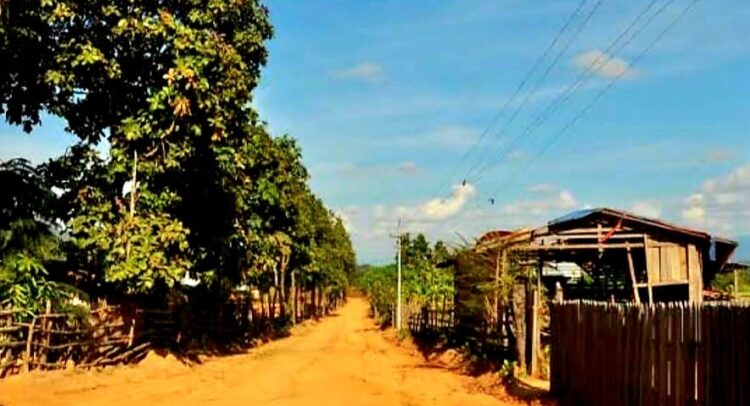
Asem Bhakta Singh, Special Correspondent North East
Imphal: (Wairi Singbul Network) The simmering ethnic strife in Manipur takes a dire turn as a human migration crisis unfolds, adding another layer of complexity to the ongoing political unrest in the Indian state following the military junta coup in the bordering country of Myanmar.
Reports from Moreh reveal intense firing between Myanmar’s Military Junta and rebel groups at Walphabung village in Namphalong, Tamu District, igniting panic among over a hundred Myanmar nationals, including women and children.
Seeking safety, they have fled across the border into Manipur’s border town of Moreh.
Police and paramilitary sources posted in Moreh confirms the immigration crisis from across the border continues even after Government of India suspended the Free Movement Regime (FMR) to contend the ethnic strife in the state. Mostly women and children cross over ti the Kuki Village of Holenphai for safety whenever the fighting between the Myanmar government military and pro democratic rebels intensifies and returnsto their homes across the border when it is safe, official sources said.
The latest influx of refugees, believed to be over 200 in number, highlights the escalating violence in Myanmar, with concerns mounting over further clashes, particularly given the significant presence of Myanmar army personnel in Walphabung village, predominantly inhabited by the Kuki community.
Notably, the fallout of the political unrest in Myanmar has impacted Manipur a long time ago, exacerbating the existing ethnic strife between the Kuki Zo and the Meitei communities that started since May 3 in Churachandpur.
The influx of refugees fleeing violence from across the border adds another dimension to the complex dynamics of the region, further straining resources and deepening tensions.
With allegations of illegal immigrants being involved in sustaining the unrest in Manipur, the situation becomes even more volatile, demanding a comprehensive and nuanced approach to address both the immediate humanitarian crisis and the underlying ethnic tensions. Immediate action and coordinated efforts are imperative to prevent further escalation and foster stability in the region.


